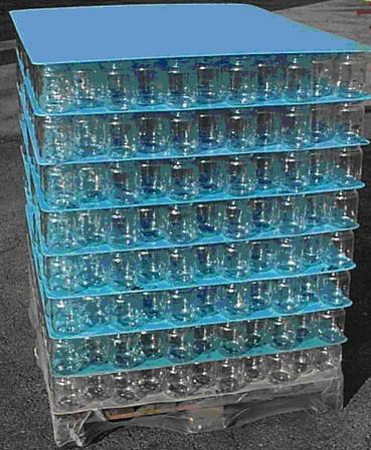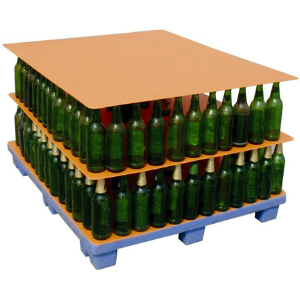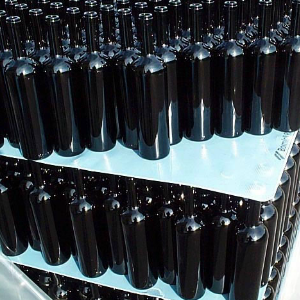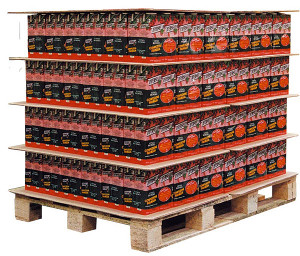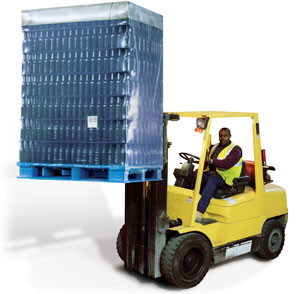Worldwide Companies around the world manufacturing glass / plastic bottles or aluminum cans have been using interlayer panels for many years for storage and transport on pallets of their products.
Originally made of cardboard or wood plate, they have been replaced more and more by plastic ones which offer greater hygiene and durability. Let’s see the main reasons for this replacement:
- The continuous cardboard / wood plate rubbing during pallet transport accumulates material detachments inside and outside of bottles and cans, with the need for their careful washing / drying and consequent costs increasing.
- The cardboard / wood plate open profile facilitates liquids / foreign bodies infiltration with the risk of mold / bacteria developing.
- The above risk of foreign bodies infiltration and its humidity permeability increases the risk of fragility with possible Layer Pad breakage and consequent goods damage.
- The risk of fragility makes cardboard / wood Layer Pads unsuitable for multiple re-use
Trough its reusability, polypropylene Layer Pads have moved economic convenience for end users from purchasing to renting. Infact today renting service is particularly widespread both in Europe and in America with still wide margins of growth inside and outside such territories, especially after the introduction of European Community guidelines, more and more adopted worldwide, for the development of a circular economy that rewards products recyclability and re-use.
The introduction of renting service has led to a growing market demand and therefore to a product differentiation according to different customer needs. In particular, the current Layer Pads offer is mainly composed of the following 3 types:
1. High-Weight Solid Plastic Sheet, particularly suitable for heavy bottles such as those used for Champagne.
2. Low-Weight Solid Plastic Sheet, particularly suitable for light bottles such as those made of plastic or cans.
3. Intermediate-Weight Hollow Profile. Considering a given weight, hollow profile Layer Pad allows for a greater thickness and therefore greater compression stiffness / elasticity, and it’s therefore suitable for most normal glass bottles. Unlike types 1 and 2, this Layer Pad needs having its profile sealed.
Since 60s Agripak began to develop its extrusion technology for plastic solid profiles, through the design and production of the "PlastcSheet" lines for mono and multi-layer foils and sheets. In the 70s the "CartonPlast" lines for hollow profile sheets extrusion were added. Subsequently “Converting” machinery were developed for hollow profile Layer Pads edges rounding and profile sealing. Today Agripak is one of the world's leading companies for the engineering and manufacturing of plastic processing technology, able to provide a complete turnkey service for the whole production process focused on customer requirements, constantly committed to pursue a sustainable business model towards people, environment and resources, compatible with circular economy guide lines.




